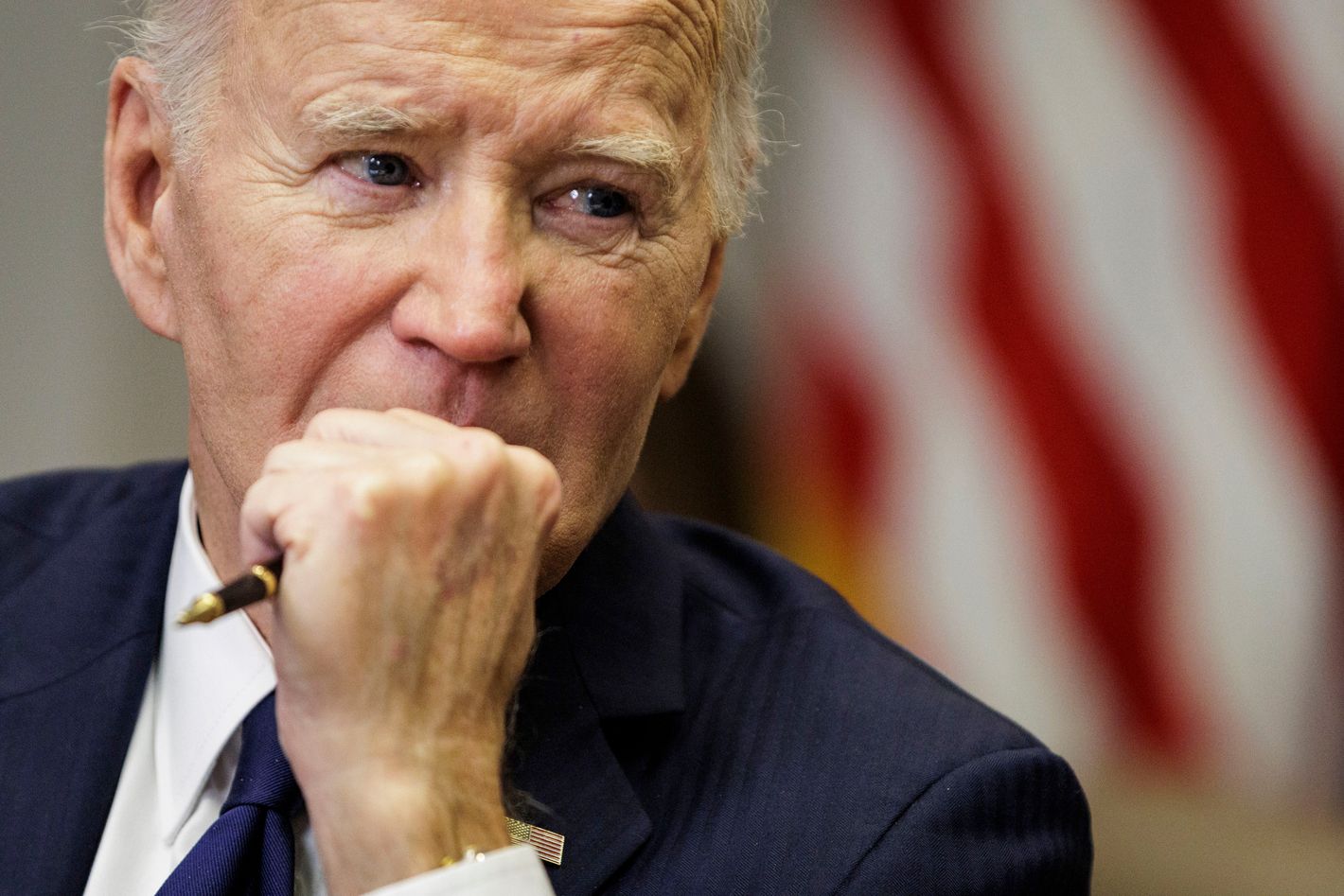Samuel Corum/Sipa/Bloomberg via Getty Images
For a good portion of the 2024 general-election contest, the big choice for voters was between a very old but very normal Democrat with a questionable record on inflation and immigration, and a somewhat younger but erratic Republican who never accepted his 2020 defeat and tried to overturn it with the help of a mob that assaulted the U.S. Capitol. Partisans on both sides thought the choice was pretty easy to make, but in the end, the voters who decided this thing broke toward Donald Trump in an implicit acceptance of his conduct on January 6, 2021.
There were some other things going on in the crucial days of the campaign, ranging from varying reactions to Kamala Harris’s style and substance to rosy if ahistorical memories of what life was like during the pre-insurrectionary moments of the Trump administration. But in the end, a return to Trump seemed better to a small but crucial slice of the population than a continuation of Democratic rule.
That’s certainly what the election results, close as they were, appear to suggest, and it looks like we’ll have a secondary verification of that interpretation of events in the final job-approval ratings of the 46th president, as opposed to the 45th. At the absolute nadir of his tenure, in the days between January 6 and Joe Biden’s inauguration on January 20, 2021, Donald Trump’s job approval ratings dropped from 42.4 percent to 38.4 percent, according to the FiveThirtyEight averages. At present, Biden’s job-approval rating according to the same averages is 37.1 percent; it has been below 38 percent since November 26. The odds of a preinaugural rebound don’t look good.
Sometimes, personal favorability numbers look significantly different than job approval, particularly in a president with poor luck. But that doesn’t seem to be the case with these two men. At the end of January 2021, Trump’s favorability average was 38.8 percent, almost identical to his final job-approval ratings. Now it’s at 47.3 percent, higher than at any point since he left office the first time; by Inauguration Day, his favorability ratio may reach net positive numbers for the first time since regular polling of him began in 2015. Biden’s favorability ratios were at net positive levels throughout 2021, but have regularly deteriorated ever since. His favorability average is now at 38.5 percent, barely above his job-approval ratings.
Trump, of course, has the opportunity to soar or plunge in both job approval and personal favorability during the next four years, while Biden has likely solidified a trajectory that was as dismal as his 2024 reelection campaign appeared to be. The judgment of history, of course, could differ greatly for both presidents and will likely be kinder for Biden than that of the November electorate.

